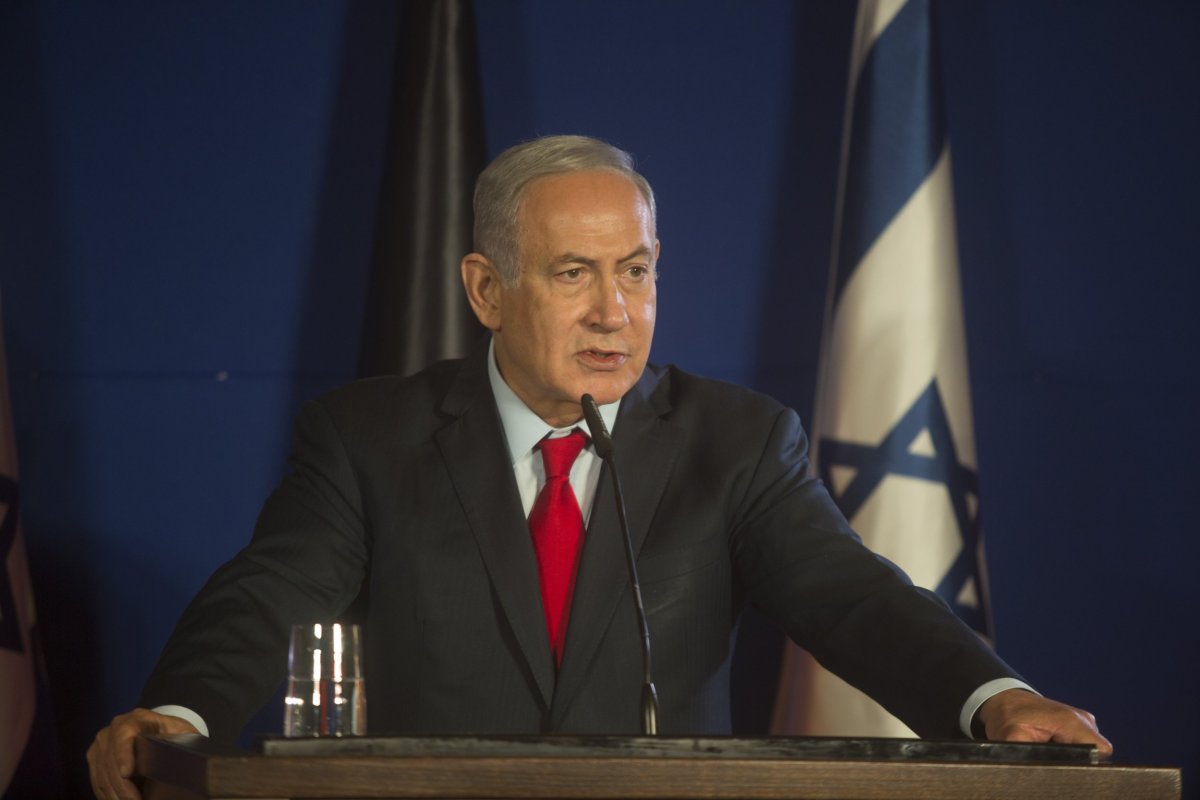Last Friday, the images on Israeli TVs were of dollar-filled suitcases being delivered to Hamas in Gaza. On Saturday, that money was joyfully handed out to thousands of unpaid Hamas workers and fighters. Many in Israel questioned the decision to allow the money into Gaza and awarded to Hamas to distribute.
In a rare press conference on Sunday in Paris, Prime Minister Benjamin Netanyahu defended the cash arrangement stating it was designed to avoid another needless war. He stressed that a war would accomplish nothing other than destroying lives, emphasizing he feels it is his responsibility to prevent the unnecessary death of Israeli soldiers. However, when Netanyahu was pushed to share his long-term strategy, he maintained there could never be peace with Hamas, comparing it to ISIS.
At the very moments Netanyahu spoke, somewhere in Israel, last minute preparations were underway for an undercover intelligence mission into the Gaza Strip. It was a relatively routine operation, but one Netanyahu would have no doubt been aware of. While 99 percent of these operations take place without anyone taking note, this time, something went awry and the undercover soldiers were discovered. What resulted was a difficult firefight to extricate the force.
The forces were indeed extracted, but a high-ranking IDF officer was killed. Due to the sensitive nature of his work, his identity was not revealed, but "M." was publicly eulogized by the president and the prime minister for his contribution to national defense. Seven Hamas members were killed in the firefight, including one high-ranking Hamas officer. In the hours that followed, the hope was that Hamas would not retaliate, contenting itself with "celebrating" its success in thwarting the Israeli mission and killing a high ranking officer. Despite those hopes, the IDF was concerned enough to deploy additional Iron Dome batteries to the area to prepare for a possible Hamas response.
During the course of the day both Israel and Hamas buried their dead. As the sun set, Hamas fired an anti-tank weapon at a bus from which 50 soldiers just disembarked. One soldier was still on the bus, and he was gravely wounded. Moments later, Hamas open a barrage of over 50 missiles on targets in the South.
The rocket attacks continued all night and into the morning. Over 400 rockets have been fired into Israel as of Tuesday morning. Iron Dome was able to intercept most of the missiles that would have landed in population centers, but some rockets did got through.

As of 9 AM Tuesday morning, 54 Israelis have been injured and hospitalized—one in critical condition; two in serious condition, and the rest less gravely wounded. One individual was killed by a rocket that landed on the city of Ashkelon. In the meantime, the Israeli Air Force has been attacking Hamas targets in Gaza. Up to now, the IDF warns residents and even Hamas members before destroying buildings in Gaza. Six Hamas members have been killed in Israeli strike as of Tuesday noon. Hamas has declared that if Israel continues to attack targets in Gaza, it will expand the range of targets it strikes.
The Hamas assumption that Israel does not want war and will agree to another ceasefire based on "quiet, in exchange for quiet" is probably mistaken. Netanyahu had only limited support for the short-lived agreement he reached with Hamas before the recent outbreak. Despite Netanyahu's sincere wish to avoid war and needless casualties on the Israeli side, the prime minister will find it difficult to agree to a ceasefire without taking significant action against Hamas, even if that risks a broader exchange of fire and loss of lives.
The views expressed in this article are the author's own.
Uncommon Knowledge
Newsweek is committed to challenging conventional wisdom and finding connections in the search for common ground.
Newsweek is committed to challenging conventional wisdom and finding connections in the search for common ground.
About the writer
To read how Newsweek uses AI as a newsroom tool, Click here.








